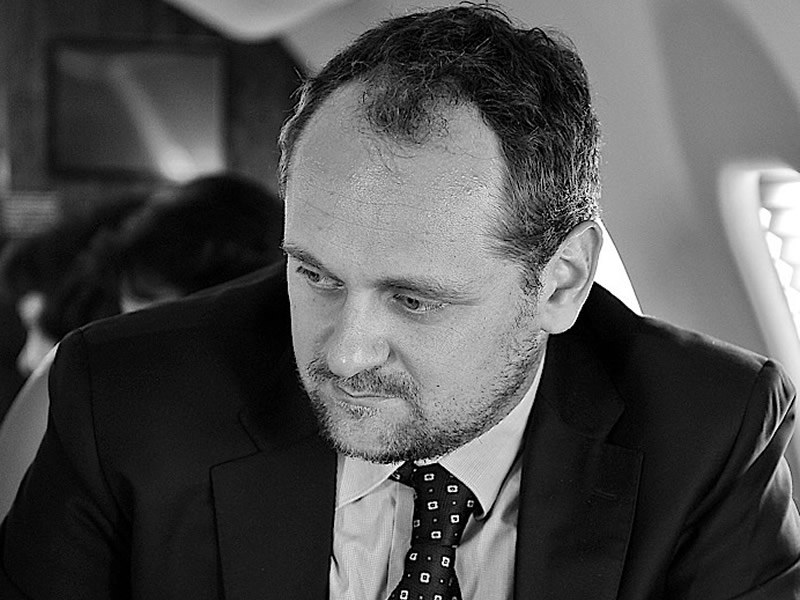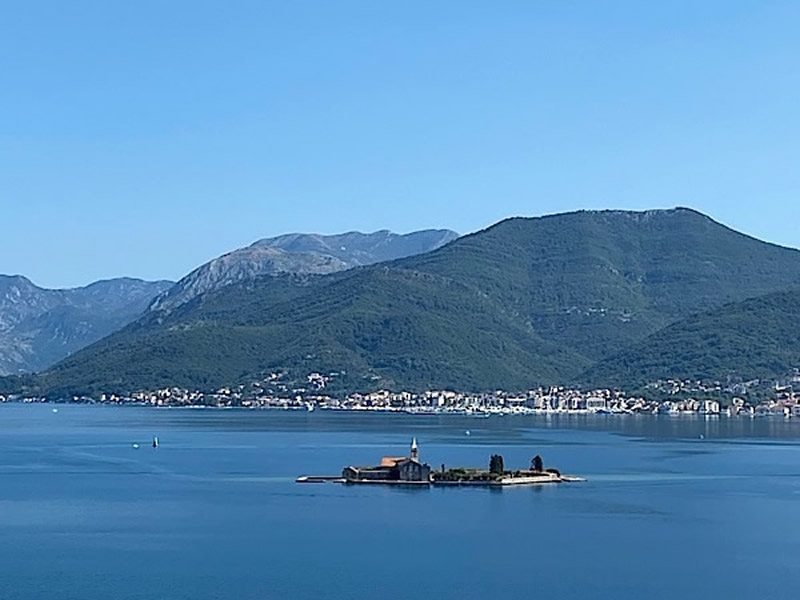Gordan Stojovic
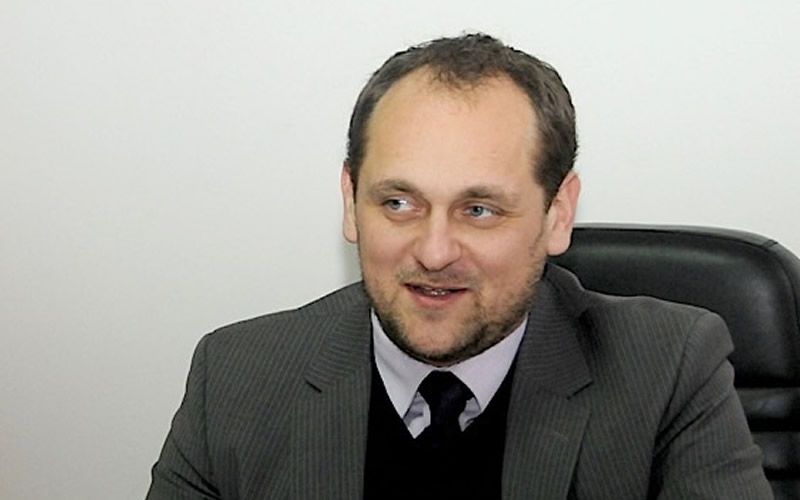
Fue el primer embajador de Montenegro en la Argentina
y tuvimos el privilegio de tener una breve charla con él.
Gordan Sotjovic was the first Montenegrin ambassador to Argentina and we had the privilege of having a brief talk with him.
Montenegro, o Crna Gora en su idioma original, es uno de los países que integran la Península Balcánica, cuyas hermosas costas están bañadas por el Mar Adriático.
De una singular belleza, este país tiene una gran historia y se ha convertido en uno de los principales descubrimientos turísticos del mundo.
Gordan Stojovic fue el primer embajador de Montenegro en la Argentina y tuvimos el privilegio de tener una breve charla con él la cual aquí les compartimos los puntos más destacados.
Montenegro, or Crna Gora in its original language, is one of the countries that make up the Balkan Peninsula, whose beautiful coasts are washed by the Adriatic Sea.
Bearing a singular beauty, this country has not only amazing history but also one of the main touristic discoveries in the world.
Gordan Stojovic was the first Montenegrin ambassador to Argentina and we had the privilege of having a brief talk with him. Here we share its most outstanding points.
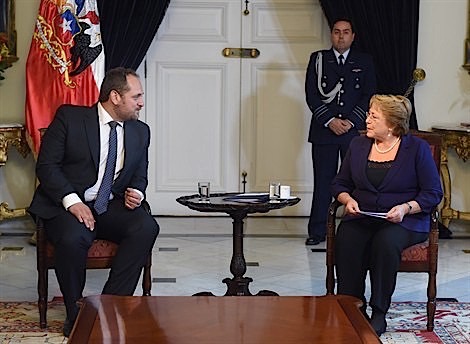
I - Que se destaca culturalmente en Montenegro?
G.S. - Lo que más se destaca de la cultura montenegrina es que siempre fue un país libre. Montenegro es el único país en la región de los Balcanes Occidentales que no fue íntegramente conquistado por los otomanos y otras potencias regionales entre el 1500 y 1918. El amor por la libertad sin dudas es una de las cosas más interesantes que destacan a Montenegro y a los montenegrinos.
I - What stands out culturally in Montenegro?
G.S. - What stands out the most about Montenegrin culture is that it has always been a free country. Montenegro is the only country in the Western Balkan region that was not fully conquered by the Ottomans or any other regional powers between 1500 and 1918. The love of freedom is undoubtedly one of the most interesting things to highlight about Montenegro and the Montenegrins.
I - Cuales son las características gastronómicas montenegrinas?
G.S. - Siendo un país mediterráneo con fuertes influencias de los grandes países de la región, la cocina es muy similar a lo que se puede encontrar tanto en España como en Italia, obviamente con sus cosas específicas y con diferentes sabores como ser el jamón ahumado, que es la comida nacional, aceite de oliva y una gran variedad de quesos en la parte norte de nuestro país. Una cosa que quiero destacar, porque pienso que podría ser interesante a su público, es el jamón de vaca y el jamón de cabra.
I - What are the Montenegrin gastronomic characteristics?
G.S. - Being a Mediterranean country with strong influence from the great countries of the region, its dishes are very similar to what can be found in Spain and Italy, obviously with specific characteristics and with different flavors such as smoked ham, which is the national food, olive oil and a great variety of cheese in the northern part of the country. One thing that I want to highlight, because I think it could be interesting to your audience, is both cow and goat ham.
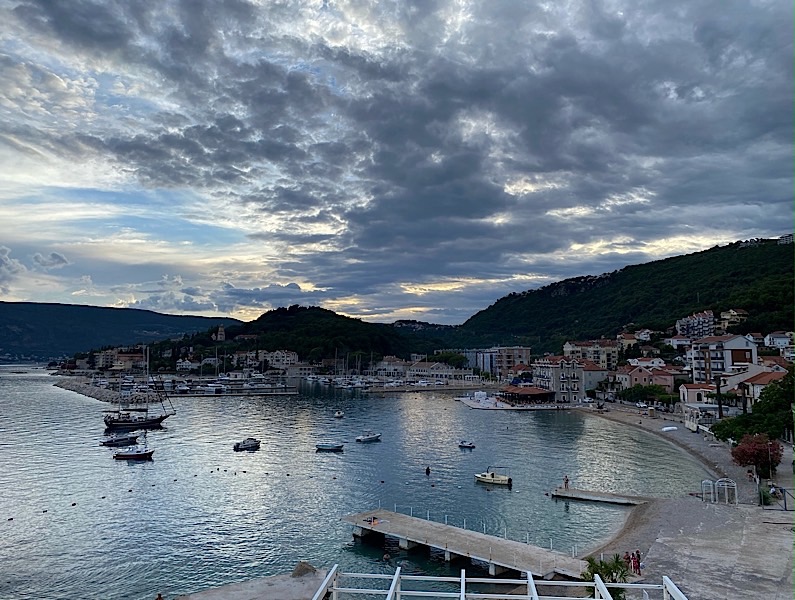
I - Cuanto tiempo recomendaría como ideal para visitar Montenegro?
G.S. - Los períodos ideales para mi son fuera de la temporada central de invierno que es en Diciembre, Enero y Febrero y de verano Junio, Julio y Agosto. El mejor período para estar en Montenegro bajo mi criterio y el de muchos años trabajando en la promoción de los potenciales económicos y turísticos, serían Abril y Mayo en primavera y Septiembre y Octubre en otoño. Menos gente y mejores precios, ambas al mismo tiempo. Pero si alguien busca la vida nocturna, seguramente el mejor período es entre el 20 de Julio y el 20 de Agosto. Yendo en Abril se puede organizar, dependiendo del tiempo, esquiar y hacer snorkeling en el mismo día.
I - How long would you recommend as ideal to visit Montenegro?
G.S. - The ideal periods for me are outside the central winter season in December, January and February and June, July and August in summer. The best period to be in Montenegro (in my view because of many years working in the promotion of economic and touristic potential, would be April and May in spring and September and October in autumn. Fewer people and better prices. But, if someone is looking for nightlife, surely the best period is between July 20 and August 20. When going in April you can organize, depending on the weather, skiing and snorkeling on the same day.
I - Cuál es la forma más práctica de llegar?
G.S. – En avión por cualquier de las mayores ciudades europeas, Estambul, Roma, Londres, Paris, Frankfurt o también por Dubai.
I - What is the most practical way to get there?
G.S. - By plane through any of the major European cities, Istanbul, Rome, London, Paris, Frankfurt or also via Dubai.
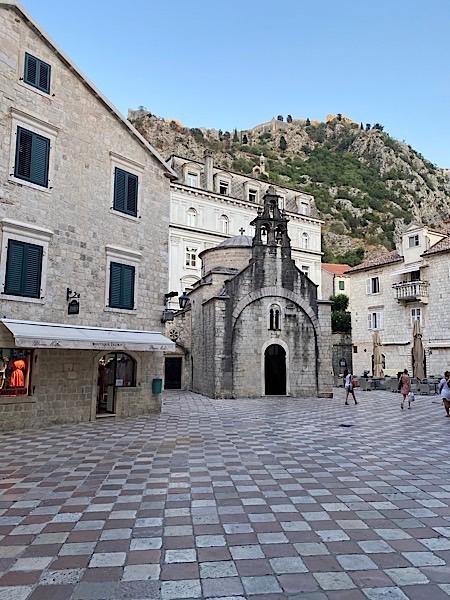
I – Y cuál sería la manera mas conveniente de recorrer el país?
G.S. - En auto, y hay que manejar siguiendo las instrucciones porque las multas son bastante elevadas, en promedio 10 veces más que las de Argentina, y la policía es muy estricta. De otro lado esto es bueno porque la seguridad vial es de muy buen nivel.
Con respecto a los estacionamientos, estos se pagan con mensajes de texto y las indicaciones están en los lugares para este propósito. Otra opción es comprar el ticket para estacionar en cualquier kiosco.
I - And what would be the most convenient way to travel the country?
G.S. - By car, and you have to drive respecting regulations because fines are quite high, on average 10 times more than those in Argentina, and the police are very strict. On the other hand, this is good because road safety is controlled.
Parking is paid with text messages and the indications are in the places for this purpose. Another option is to buy the ticket to park at any kiosk.
I - Que lenguajes se utilizan?
G.S. - Además del montenegrino, la gente mayor habla el italiano en la parte costera y central, algunos otros hablan ruso pero la gente joven casi todos hablan un buen inglés. Siendo un país pequeño los idiomas extranjeros son necesarios y en el sistema escolar están incluidos y son muy importantes.
I - What languages are spoken?
G.S. - Besides montenegrin, older people speak Italian in the coastal and central part, some others speak Russian but young people almost all speak good English. Being a small country, foreign languages are necessary and important, thus, included in the school system.
I - Hace falta visa para ingresar?
G.S. - Los argentinos y otros habitantes del continente sudamericano no necesitan visa para ingresar al país, el único país que todavía necesita visa es Bolivia.
Esta charla reavivó nuestro siempre vigente interés por visitar ese interesante país y esperamos poder hacerlo el año próximo.
I - Do you need a visa to enter?
G.S. - Argentines and other South Americans do not need a visa to enter the country, the only country that still needs visa is Bolivia.
This talk rekindled our ever-present interest in visiting this interesting country and we hope to do so next year.


